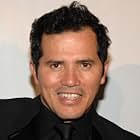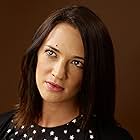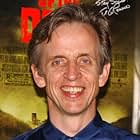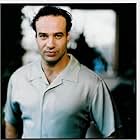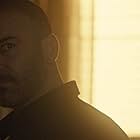The living dead have taken over the world, and the last humans live in a walled city to protect themselves as they come to grips with the situation.The living dead have taken over the world, and the last humans live in a walled city to protect themselves as they come to grips with the situation.The living dead have taken over the world, and the last humans live in a walled city to protect themselves as they come to grips with the situation.
- Awards
- 2 wins & 17 nominations
- Director
- Writer
- All cast & crew
- Production, box office & more at IMDbPro
Storyline
Did you know
- TriviaPartly based on the original, much longer script for Day of the Dead (1985).
- GoofsAt the start, when the Skyflowers stop and they are leaving the supermarket, 3 zombies are shot by the guy in the truck. The third zombie falls before being shot.
- Crazy creditsThe old mid-1930s Universal Pictures logo begins the film.
- Alternate versionsAvailable in an uncut and unrated version on dvd, restoring both gore and dialogue cut from the theatrical version.
- ConnectionsEdited into Cent une tueries de zombies (2012)
Featured review
Let me start by saying I'm a big fan of George Romero's previous films, especially the dead series. I thought he really hit his stride with Day of the Dead making a slick, structurally sophisticated continuation of his original idea. Not many people can pull off a sequel and I thought he did it twice with Dawn and Day. I also think he had something quite interesting to say with each of those films, layering thematic commentary under the story without distracting from main story elements or themes. His films were always about the shortcomings of man and the inability to work together in the face of danger. His films were always about the people, not the zombies.
But now he has tried so hard to make a political statement that he has hammered into his own genre at the expense of the film. It was interesting in Day when the scientist discovers that a zombie can regain some latent memory and begin to function in a more human way. I was very powerful when that zombie musters up just enough motor skill and latent memory to shoot the villain. It feels like a stretch to say that the zombies, or even the one zombie, in Land could make a conversion of understanding that leads an all out revolt. On an intellectual level, I understand it, but it just didn't work for me. This seems to me like a bigger deviation from the Romero concept then some of the things complained about in the many Romero inspired films recently.
The world described in the previews and press material doesn't seem fully realized. There is a huge divide between the rich and the poor. Why? How did it get that way. It doesn't seem like that would function well under the circumstances of the world as it is, especially in a small society. Why don't we find out anything about how this place works? How does Denis Hopper maintain his power? It is presented as a concept without any real thought. In the original film "The Island of Lost Souls" Doctor Moreau controls his population of beasts with fear. He cracks the whip, recites the law, and talks about the house of pain, which the audience knows to be the doctor's laboratory, but the beasts know it as a building where screams are heard. This is a stunningly well designed political metaphor. In Land of the Dead, I couldn't help thinking that the underlying political message was driving the story and that questionable things were written into the story for the wrong reasons. Money is a major plot device. Denis Hopper tries to escape the city with two large bags of money. What good is money outside the city? I was wondering, what good is money inside the city? Money only works if people believe in the underlying value of it. Most countries in the real world can't keep a stable currency. There is an aerial shot of the city during the day showing the streets deserted. Why are the streets deserted? Where are all the people? Later we see the same shot only the streets are now filled with Zombies. The characters keep talking about going to Canada as a safe haven. Why? Why is Canada safer than the United States. I was left to believe that this was more political commentary. Why are the Zombies trying to get to the city? They seem to be driven by some underlying, dare I say it, political motivation.
The film as a whole seemed less like a story of characters in a horrific world established in the earlier films, and more like a series of one dimensional vignettes based on thin political ideology Rich verses poor, violence in America, mismanagement of government in post 9-11 society, negotiating with terrorists, yeah we get it. Not so subtle.
But now he has tried so hard to make a political statement that he has hammered into his own genre at the expense of the film. It was interesting in Day when the scientist discovers that a zombie can regain some latent memory and begin to function in a more human way. I was very powerful when that zombie musters up just enough motor skill and latent memory to shoot the villain. It feels like a stretch to say that the zombies, or even the one zombie, in Land could make a conversion of understanding that leads an all out revolt. On an intellectual level, I understand it, but it just didn't work for me. This seems to me like a bigger deviation from the Romero concept then some of the things complained about in the many Romero inspired films recently.
The world described in the previews and press material doesn't seem fully realized. There is a huge divide between the rich and the poor. Why? How did it get that way. It doesn't seem like that would function well under the circumstances of the world as it is, especially in a small society. Why don't we find out anything about how this place works? How does Denis Hopper maintain his power? It is presented as a concept without any real thought. In the original film "The Island of Lost Souls" Doctor Moreau controls his population of beasts with fear. He cracks the whip, recites the law, and talks about the house of pain, which the audience knows to be the doctor's laboratory, but the beasts know it as a building where screams are heard. This is a stunningly well designed political metaphor. In Land of the Dead, I couldn't help thinking that the underlying political message was driving the story and that questionable things were written into the story for the wrong reasons. Money is a major plot device. Denis Hopper tries to escape the city with two large bags of money. What good is money outside the city? I was wondering, what good is money inside the city? Money only works if people believe in the underlying value of it. Most countries in the real world can't keep a stable currency. There is an aerial shot of the city during the day showing the streets deserted. Why are the streets deserted? Where are all the people? Later we see the same shot only the streets are now filled with Zombies. The characters keep talking about going to Canada as a safe haven. Why? Why is Canada safer than the United States. I was left to believe that this was more political commentary. Why are the Zombies trying to get to the city? They seem to be driven by some underlying, dare I say it, political motivation.
The film as a whole seemed less like a story of characters in a horrific world established in the earlier films, and more like a series of one dimensional vignettes based on thin political ideology Rich verses poor, violence in America, mismanagement of government in post 9-11 society, negotiating with terrorists, yeah we get it. Not so subtle.
- Thirdover4
- Dec 1, 2005
- Permalink
Details
- Release date
- Countries of origin
- Languages
- Also known as
- Dead Reckoning
- Filming locations
- Production companies
- See more company credits at IMDbPro
Box office
- Budget
- $15,000,000 (estimated)
- Gross US & Canada
- $20,700,082
- Opening weekend US & Canada
- $10,221,705
- Jun 26, 2005
- Gross worldwide
- $47,074,133
- Runtime1 hour 33 minutes
- Color
- Sound mix
- Aspect ratio
- 2.35 : 1
Contribute to this page
Suggest an edit or add missing content











